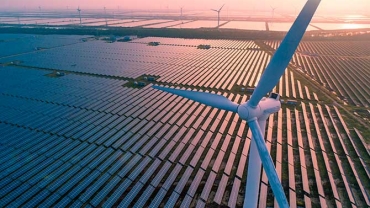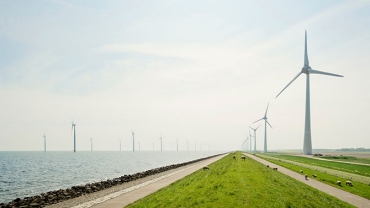
A lack of certainty is the new reality
Every year we ask corporate leaders around the globe what their most pressing agenda points are by means of our CEO Survey. What strikes me this year, is the almost unanimous pessimism about the climate CEOs’ businesses are in. Compared to the surveys of the past two years, the drop in the number of CEOs who expect economic growth to improve is dramatic.
In this year’s CEO Survey, only 23 per cent expect economic growth to improve in the coming twelve months. In the previous survey this was 42 per cent, and the year before that even 57 per cent. How should we read this sudden and dramatic drop in business spirit?
Decrease in growth expectations
More than 1,500 CEOs in our sample can’t all be wrong, can they? While in previous years CEOs may have been slightly overoptimistic, I think there are reasons to believe that CEOs are now perhaps a little overpessimistic. The substantial downward swing seems to suggest we will face a huge drop in global output, which I and most economic forecasters, don’t think will materialise.
No new threats
The threats CEOs perceive now, form the basis for their pessimism, were already there two years ago and even before: cyber security, trade disputes, globalisation scepticism, labour shortages, and the uncertainty about the response to all those by governments. What is maybe most surprising, is what took the CEO community so long to take the dark clouds as seriously as they seem to be doing now.
The old economic rules are not coming back
Perhaps one of the reasons for the current caution, is the sobering realisation that the economy is in fact in a different mode than before the crisis, and that the old days with the old economic rules are not immediately coming back. Indeed, three big items play a role.
1. The promises of the data explosion are very slow to be fulfilled
The great economic and societal promises of the data explosion are very slow to be fulfilled. Notwithstanding the emergence of very successful technology-driven companies, the application of the new technologies does not yet translate into landslide-level productivity increases, large-scale societal improvements, or massive new industries. After the initial excitement, there may now be some scepticism about when the next Great Productivity Impulse or Fourth Industrial Revolution will eventually materialise.
2. In the new, digital economy labour is also decaying
Much stronger than before the crisis, demographics in most regions in the world sees more people leaving the labour market than entering. An important aspect in the new, digital economy, is that not only physical capital depreciates, labour is also decaying, unless we overhaul education and training. In our survey we see that CEOs take some of the responsibility for this, but we also see the struggle they have with efficient and effective implementation of upskilling schemes. For instance, only eighteen per cent made significant progress with establishing an upskilling programme, while more than thirteen per cent made no progress.
3. CEOs still struggle with climate change
Most CEOs acknowledge that climate change is a problem. This is important, as realisation is dawning that companies cause external effects. Both realisation and accountability, have crystallised in only the past years. According to our survey, some CEOs are still searching for ways to turn the new reality into business opportunities. Just 25% of CEOs has the conviction that climate change initiatives will lead to significant new product and service opportunities.
Is GDP still the target indicator for growth?
Admittedly, governments too have been slow to wake up to the new economic realities, and even if they try to respond, they tread uncharted territories in terms of policy design. How to stimulate growth if the monetary instruments have reached their limits? And is GDP still the target indicator for growth, or is it too blunt to measure prosperity development across the population? Does an inflation policy target still make any sense if digital economic activity isn’t always priced or even taxed at all?
CEOs fear over-regulation and populism
No wonder CEOs are nervous about the steps governments might take. Our surveyed CEOs express deep concern about the ways governments might respond to current policy challenges. That is why over-regulation, policy uncertainty, geopolitical uncertainty and populism are all part of the top-10 threats seen by CEOs globally.
Hold on to longer-term policies
A lack of certainty is likely the new reality. It would be wise for companies to hold on to longer-term policies, to continue investing in the energy transition, digitalisation and their employees. This way they will remain relevant in the future as well.

CEOs more pessimistic about economic prospects
Only two years ago, CEOs worldwide were very positive about the economic outlook in our CEO Survey. Last year we already saw small cracks appear, and this year CEO sentiment is fairly pessimistic.
For the 23rd time, we asked CEOs worldwide about their agenda items, their expectations and their concerns. The percentage of CEOs indicating to be ‘somewhat confident’ about their organisation's prospects for revenue growth over the next twelve months, remained roughly unchanged at 45. The number of CEOs that is ‘very confident’ about the prospects for revenue growth, declined however from 35 per cent to 27 per cent. As such, CEOs are more positive about the prospects for their own organisation than those for the economy as a whole.
Contact

Jan Willem Velthuijsen
Energy Transition Economist, PwC Netherlands
Tel: +31 (0)62 248 32 93


















